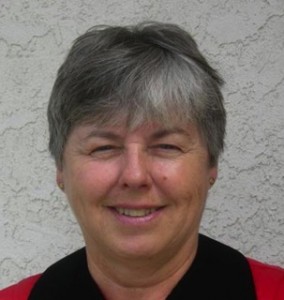NOTE: This beautiful sermon, based on 1 Thessalonians 5: 19 “Do not quench the spirit” and The Tattooed Heart was delivered on June 10, 2012 by The Rev. Dr. June Goudey, Pastor of the United Church of Christ, in Simi Valley, California.
 Vacations are good for many things, among them restoring one’s energy and quenching one’s thirst for something new. Some people choose to read a few good books, some like to golf, others go on adventures like camping and hiking. I’m happy to say my vacation had elements of these and more. What surprised me though were the books I read.
Vacations are good for many things, among them restoring one’s energy and quenching one’s thirst for something new. Some people choose to read a few good books, some like to golf, others go on adventures like camping and hiking. I’m happy to say my vacation had elements of these and more. What surprised me though were the books I read.
I knew in my absence the church year was moving from Easter to Pentecost and the role of the spirit in the life of the church would be influencing my first sermon back in your midst. My intention therefore was to read Diana Butler Bass’s new book Christianity After Religion.
Along with Dot Blankley and Giff Smith I had heard Bass speak in late April and was intrigued by her insights. Knowing I hardly ever read novels, Ann suggested we take the book with us. Unbeknownst to Ann I had downloaded to my Ipad a novel by my friend Jezra Kaye. In 2006 Jezra and her siblings donated the wall boards in our entryway in memory of their mother Reni, who was one of my dearest friends. So I was curious to see what Jezra, a former jazz singer turned public speaking coach, was up to these days.
Bass’ book is subtitled The End of Church and the Birth of a New Spiritual Awakening, a subject near and dear to my heart. Jezra’s novel is titled The Tattooed Heart. It’s a story of love found, lost, and found again in worlds far removed from my comfort zone. I poked at the first, but once I started the Tattooed Heart, I couldn’t put it down. Bass’ book is thoroughly about God and the spirit; Jezra’s book makes no such pretensions. Reading Bass, I often said, “Yes, yes…” Reading Kaye, I often said, “Oh my God!” I couldn’t believe what I was reading, but I couldn’t stop reading it either. Here’s the basic storyline:
“Rough-edged and hard-core, Gracie makes her living as a striptease dancer in a San Francisco club called Girl-O-Rama. A survivor with terrible secrets, she lives from hand to mouth; yet she’s happy because of the love she shares with her boyfriend, Marcus. Even though she doesn’t tell Marcus certain things – why she’s plagued by hideous nightmares, why she won’t even discuss having children – Gracie is closer to Marcus than she’s ever been to anyone. Like the dragon tattooed around his shoulder, Marcus is streetwise and strong, and it’s his love that helps Gracie finally kick the drugs she’s used to anesthetize herself for so long. Her love is also Marcus’ salvation, and he tattoos Gracie’s name across his heart. Just before he dies, of AIDS (the story is set in the early 80’s when the aids epidemic was little understood.), Marcus makes Grace promise to fulfill his last wish: He wants her to get pregnant and have a child in his memory. He knows she’ll need someone else to live for when he’s gone.”
The twists and turns that accompany Gracie’s journey are harrowing but always heart-felt and that’s where the power of this tale lies. Truth be told, spirit is at work in both of these books. Bass, who offers insights on the great divide between those who call themselves spiritual but not religious, wants to keep the spirit in spiritual; she believes we can be spiritual and religious, even as she documents how religious affiliation is plummeting across the breadth of Christian denominations. Kaye’s protagonist suppresses the spirit by suppressing her feelings at every opportunity. The two could not be further apart in their purpose for writing; but today I see them as part of a whole…
Jesus pitched his ministry among those who were outcasts and exiles, people found at the center of The Tattooed Heart. Ironically, Christianity has evolved so far from Jesus’ teachings that much of Christianity is quenching the spirit, the very thing the Thessalonians writer warns against. Rather than cultivating Spirit’s presence and power, many of today’s churches are hell-bent on raising hell as a specter of control rather than living out the life teachings of Jesus.
This is the dilemma Bass forces us to confront, the church as we have known it is dying. The religious certainty of the 1950’s is no longer present. Where once most Americans subscribed to a religion based on mandatory beliefs, poll after poll reveals they no longer believe the church can meet their needs. They want access to the sacred, they desperately seek a sense of meaning in their lives, but they no longer are willing to live in a world where “institutional and doctrinal scaffolding” dots the landscape of their inner journeys.
Americans want to find Spirit as personified in the writings of Christine Robinson:
My love is for God, who knows me
and hears my voice when I cry out.
When the grip of fears and anxieties
take hold of me, when I come to grief and sorrow
I call on God
and find relief.
Rest, O my soul, relax.
God is with you.
God has given your life meaning, soothed
your sufferings, and guided your feet.
Walk in God’s presence
in the land of the living.
Even when you are very low.
Even when trust is hard.
Call on God’s name.
Dietrich Bonheoffer saw this shift coming in 1944. His context then was the failure of the German Christian Church to deal effectively with the evil he saw present in the Nazi regime.
“What is bothering me incessantly is the question of what Christianity really is, for us today … We are moving towards a completely religionless time; people as they are now simply cannot be religious anymore. Even those who honestly describe themselves as ‘religious’ do not in the least act up to it, and so they presumably mean something quite different by ‘religious’…
“And if therefore man becomes radically religionless—and I think that is already more or less the case (else, how is it, for example, that this war, in contrast to all previous ones, is not calling forth any ‘religious’ reaction?) – what does that mean for ‘Christianity’?”
Bonhoeffer recognized that the spirit of God was being quenched by the acceptance of evil. In our day we have yet to fully grasp the role we are being called to play. There is evil enough all around us; not just in war, but in greed and selfishness and the refusal of many institutions to see the harm they are causing those with little money and far less power to change their lives. If we are to make a dent in this evil and dampen its power, we need the spirit’s help more than ever.
The verb “to quench” can mean several things: to satisfy a thirst, to put out a fire and also to suppress a feeling. The message in Thessalonians is not about quenching one’s thirst; it’s about living and trusting a spirit greater than oneself. The means to do that lie in the heart practices mentioned earlier: “Be at peace among yourselves. Admonish the idlers, encourage the faint-hearted, help the weak, be patient with all. See that none of you repays evil for evil, but always seek to do good to one another and to all. Rejoice always, pray without ceasing, give thanks in all circumstances; test everything; hold fast to what is good; abstain from every form of evil.”
The power to cultivate the spirit and not quench its presence lies in these life-affirming practices. In The Tattooed Heart, Gracie is a character much in need of redemption, of being saved, even from herself.. Still, she becomes a vehicle for redemption in the lives of others, before her own redemption takes shape. Despite herself she manages to hold fast to that which is good and in that process, undo the evil once done to her as well as others. Gracie’s, journey, like many, takes place outside the boundary lines of religion and spirituality; yet God’s grace is always in the picture. This to me is the ultimate truth.
“Spiritless Christianity,” not Bonheoffer’s “religionless Christianity” is what we all need to guard against. To ensure Spirit’s gifts remain unquenched we need to attend to our hearts, tattooed or otherwise, and open ourselves to Spirit’s life-giving presence. As Robinson’s psalm encourages:
Walk in God’s presence
in the land of the living
Even when you are very low.
Even when trust is hard.
Call on God’s name.

